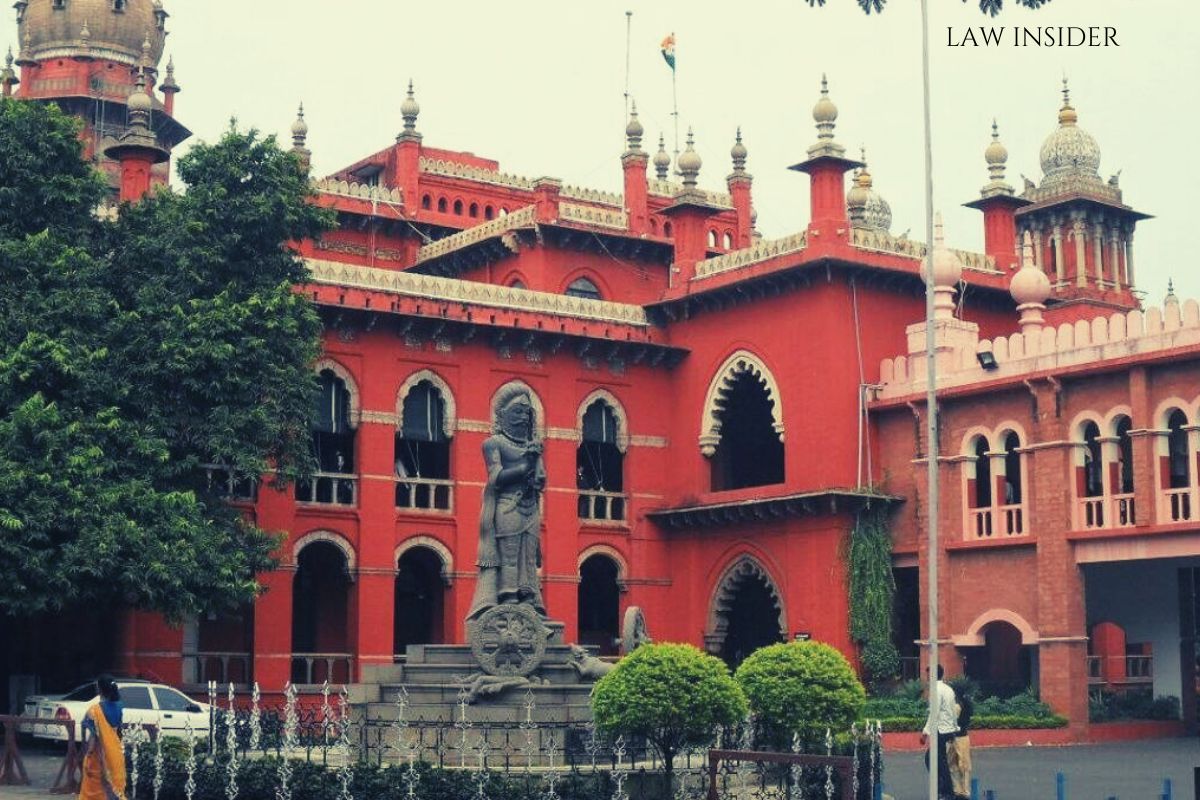LI Network
Published on: October 18, 2023 at 10:20 IST
Madras High Court, presided over by Justice KK Ramakrishnan, has exercised its discretion to order the conduct of a trial within a prison setting. This extraordinary decision comes in light of factors such as threats to the life of the accused, witnesses, and a hostile atmosphere surrounding the case.
The court, while emphasizing the need for an exceptional remedy, stated, “In the present case also, the extraordinary circumstances demand the extraordinary remedy. According to this Court, the extraordinary remedy that would satisfy the present case situation is the commencement and conclusion of the trial in both cases within the jail premises.”
The Court also noted that the practice of conducting trials in a jail is not new, and both the Supreme Court and various High Courts have supported this practice, especially when factors like threats to the accused, witnesses, and a hostile environment are taken into account.
The provision for conducting trials in jail premises is permitted by Section 327 of the Criminal Procedure Code (Cr.P.C), which has a corresponding old Section 352 in the former Cr.P.C.
The High Court underscored the legitimacy of this practice, highlighting that it has been upheld by the Supreme Court and various High Courts on different occasions.
The case revolves around a past incident involving the deceased, P.K. Muthukumar, who worked as a practicing advocate in the Thoothukudi and Tirunelveli Bar Association. He and his brother, P.K. Shivakumar, were actively opposing bail applications for the accused in Shivakumar’s murder.
As a result, the accused allegedly conspired to eliminate Muthukumar, perceiving him as an obstacle to securing bail. The accused, including the appellant, were accused of conspiring to murder Muthukumar, who was fatally attacked on 22.02.2023 in Thoothukudi.
The case led to the registration of charges under various sections of the Indian Penal Code (IPC) and the SC/ST (Prevention of Atrocities) Act.
The prosecution contended that the appellant played a role in facilitating bail for one of the accused through financial support, backed by evidence such as bank transactions and phone records. Despite the appellant’s claim that the primary evidence against him was confessions of co-accused, the Trial Court denied his bail application, prompting the appeal before the High Court.
The High Court observed that all witnesses were living in fear, leading to the decision not to grant bail. It was noted that, “The SC/ST(POA) Act specifically emphasizes the need to provide adequate protection to the victim and witnesses. In this case, the appellants and other accused eliminated one of the witnesses in the earlier case. Further, there is a continuous threat to the defacto complainant as well. The police also registered another case for criminal intimidation against the defacto complainant. As of now, all the witnesses are living in fear. In such circumstances, this Court is not inclined to grant bail.”
The Court relied on the Supreme Court’s judgment in Chaman Lal v. State of Uttar Pradesh to outline the factors to consider when granting bail. These factors include the nature of the accusation, the severity of the punishment in the event of a conviction, the nature of supporting evidence, the reasonable apprehension of tampering with witnesses, and the prima facie satisfaction of the Court in support of the charge.
The Court, after finding that all these ingredients were met in the case, held that the appellant was not entitled to bail.
The Court further noted that the dismissal of the appeal alone would not serve the purpose, given the unique circumstances of the case. The accused remained in jail without bail, while witnesses were under constant threat. In this context, a special remedy was provided. As a result, the appeal was dismissed.
Case Title: Sutherson vs. The Deputy Superintendent of Police.

